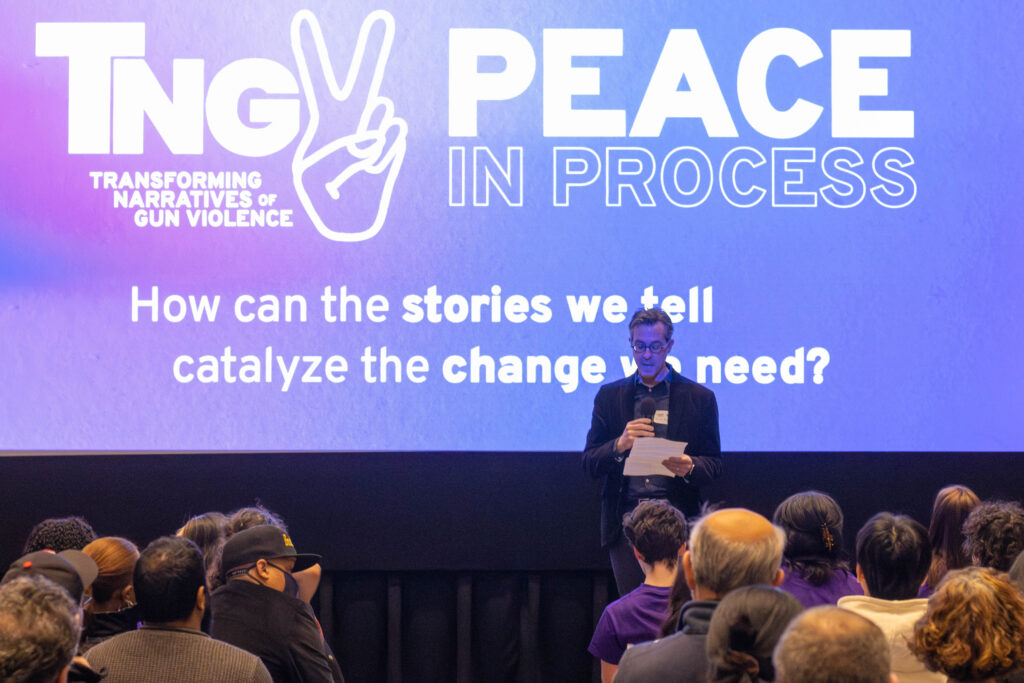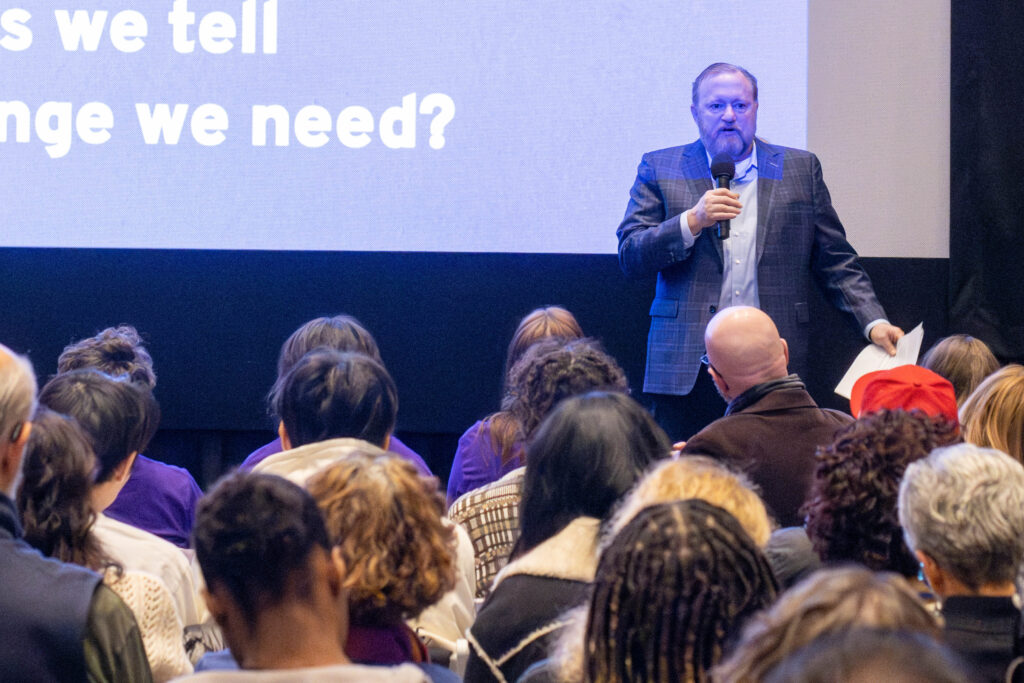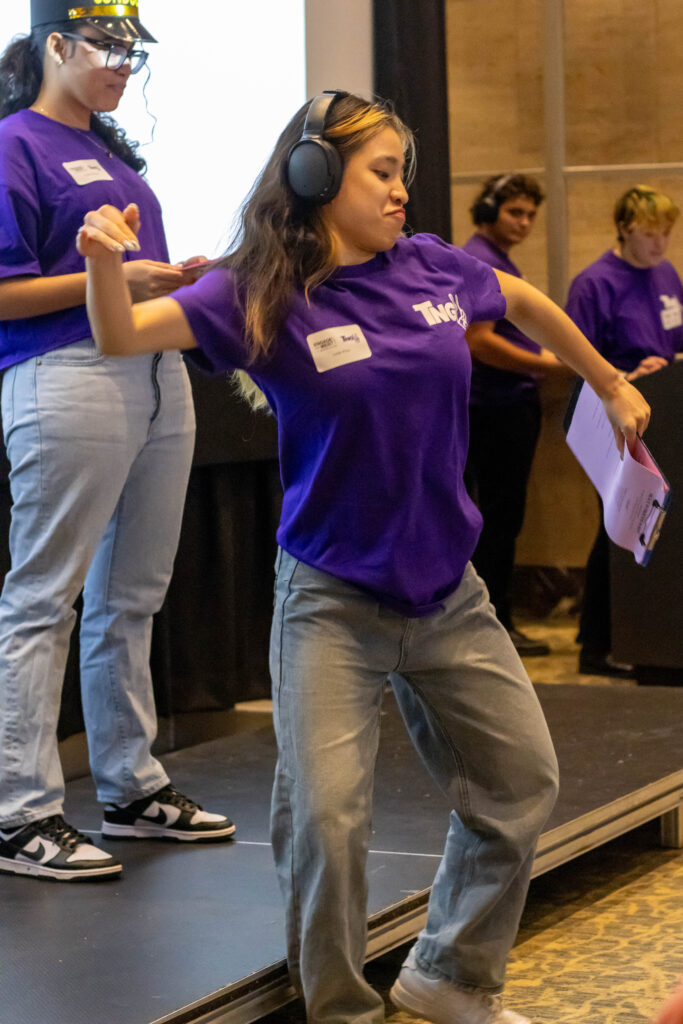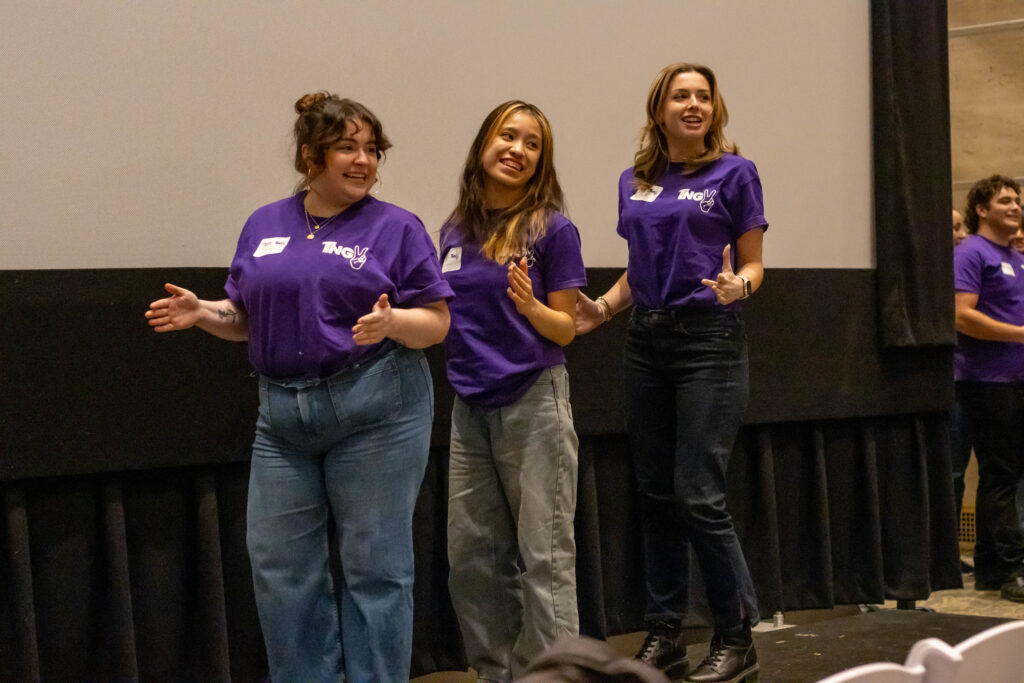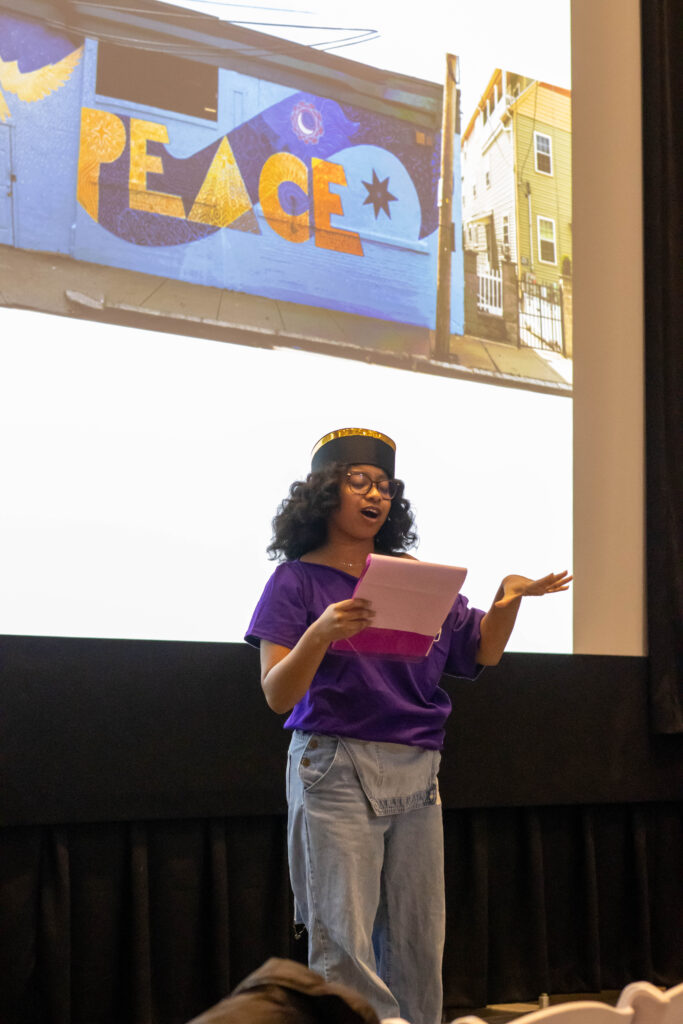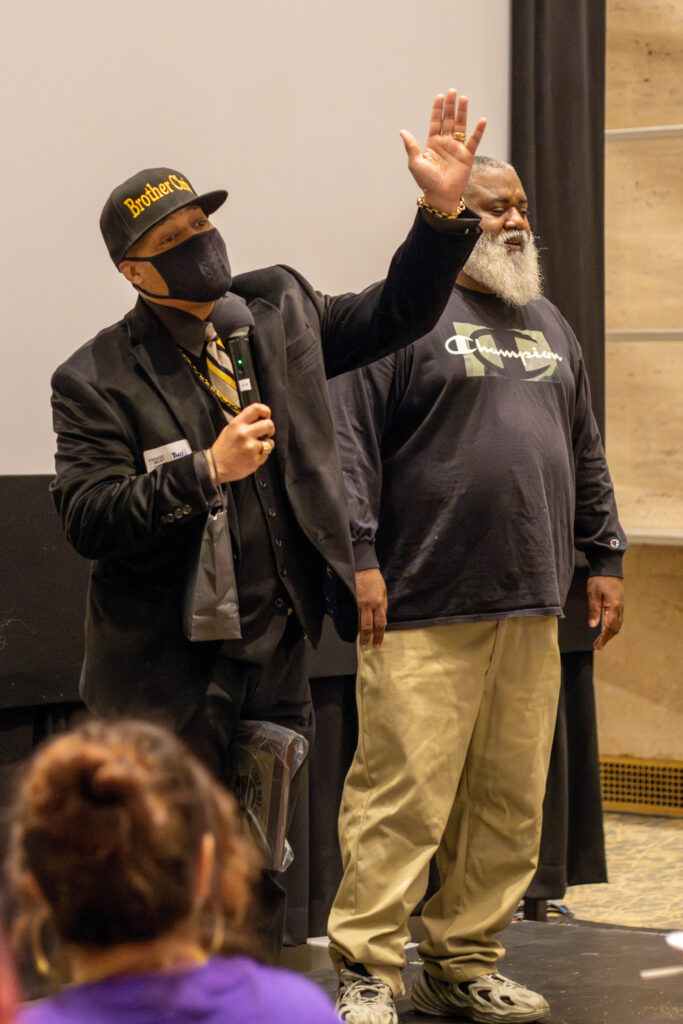Gun Violence Survivors Give Testimony at Peace in Process Event
Photos by Rian Nelson ’25
In an evening of heartfelt testimony, members of the Emerson Engagement Lab’s Transforming Narratives of Gun Violence initiative shared their stories about the impacts of gun violence at the TNGV Peace in Process event on Dec. 12 at the Bordy Theatre.
“Emerson and Emersonians have long been committed to issues of social justice,” said Emerson College President Dr. Jay Bernhardt to begin the event. “And we use experiences, our expertise, along with our power and our privilege, to contribute to making the world better and more just.”
The event, Peace in Process, was co-hosted by the Massachusetts Coalition to Prevent Gun Violence, and featured a collaborative documentary from a studio class taught by Professor and Engagement Lab Director Eric Gordon and Visual & Media Arts Senior Distinguished Director-in-Residence Theodore Life, as well as an interactive theater performance led by Performing Arts Assistant Professor Dana Edell.
This semester Emerson College students, faculty, and community learning partners worked together in two Social Impact Studios to co-create a short documentary film and an interactive theatre performance to support peace, healing, and justice in Boston.
The documentary Incorrigible, details the life of Will Dunn, a Roxbury resident who fell into a cycle of gangs and violence as a teenager. At 16, Dunn served five years in prison for his involvement in a gang murder in 1991.
Dunn and Wawa Leviner co-founded the Nubian Square Foundation in 2021, a non-profit organization that seeks to give back to the community and stop gun and gang violence. Dunn and Leviner were once in prison together.
Footage from a previous PBS documentary about gang violence in Boston was used, and the documentary studio’s film is an intentional response to and critique of PBS coverage from the 1990s.
“
“Thirty years ago, PBS brought a camera into Orchard Park projects and they tried to tell a story about kids who play with guns. They never after that story decided to go back and see what happened to them, or what those kids needed, or who they became,” said said Elexxus Ryan Perea, a learning partner and member of Uncornered. “I wish that PBS or GBH went back and showed that… but I know that we’re blessed to have been the ones to showcase these people’s lives and honored, honestly, to have been let in on their brotherhood and trusted enough to be the ones to tell their story.”
I
Following the film, theater students from Edell’s class performed in a live production. The piece focused on busting commonly-held myths about gun violence in our communities and how it impacts everyone in different ways. Performers called out Boston’s affordable housing crisis as well as the numerous locations named after slave owners including two of Boston’s most beloved locations: Faneuil Hall and Franklin Park.
“This initiative is about storytelling,” Gordon said. “Our goal was simple: to harness the power of media and storytelling to support and amplify the voices and actions of the people in Boston whose stories are not being heard, and whose voices are necessary to transform existing and harmful narratives of gun violence.”
Categories
